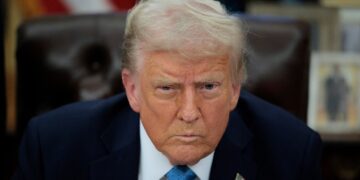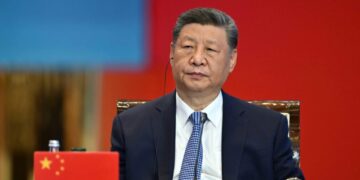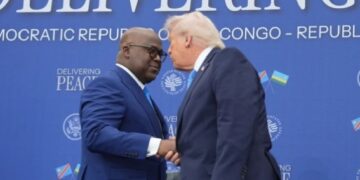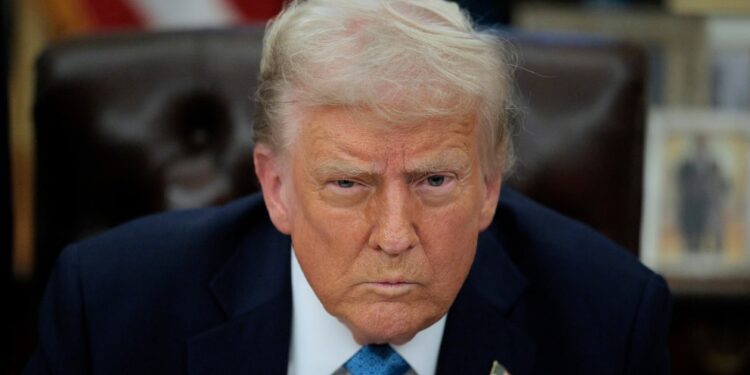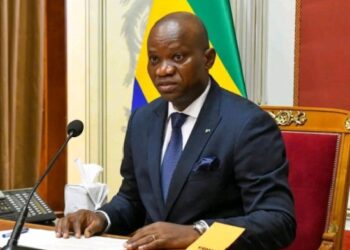The US dollar dipped on Wednesday after reports emerged that President Donald Trump had considered firing Federal Reserve Chair Jerome Powell, a move that sent shockwaves through financial markets and reignited concerns over central bank independence.
Initial reports from major media outlets claimed that Trump had floated a draft letter firing Powell during a closed-door meeting with Republican lawmakers. The speculation sparked an immediate market reaction: the dollar weakened, stocks slumped, and Treasury yields climbed as investors priced in rising political risk and uncertainty over US monetary policy.
Though Trump later denied the existence of a draft letter, his comments did little to calm the markets. “I don’t rule out anything,” Trump told reporters, adding that such action would only be likely “unless he has to leave for fraud”, nod to recent criticism of a $2.5 billion renovation of the Fed’s historic Washington headquarters.
Analysts say the dollar’s drop reflects growing anxiety over potential White House interference in the Fed’s decision-making process. “Any hint that Trump is willing to oust Powell shakes investor confidence in the Fed’s independence,” said a senior currency strategist. “The greenback is reacting accordingly.”
Despite walking back the firing rumors, Trump doubled down on his attacks against Powell, calling him a “terrible” chair for refusing to cut interest rates. His frequent criticism has placed Powell, originally appointed by Trump in 2017 and re-nominated by President Joe Biden, at the center of an increasingly politicized economic debate.
The White House’s pressure campaign intensified last week when Trump’s budget chief sent a sharply worded letter to Powell, accusing the Fed of mismanaging the costly renovation project. Powell responded by requesting an internal review and releasing a fact sheet refuting the claims.
While Trump’s actions have rattled investors, members of Congress are pushing back. Senator Thom Tillis, a Republican on the Senate Banking Committee, issued a firm defense of Fed independence on the Senate floor, warning that firing Powell over policy disagreements would “undermine the credibility of the United States.”
Trump’s repeated attacks on Powell come at a delicate moment. The Fed has kept interest rates steady, citing the need for more data on the economic impact of Trump’s sweeping tariff measures. But with inflation ticking up and growth slowing, pressure on the central bank is mounting from all sides.
“This isn’t just about Powell,” said Bharat Ramamurti, a former White House economic adviser. “It’s about Trump needing a scapegoat for an economy strained by his own policies.”
Despite Trump’s remarks downplaying any imminent dismissal, the political theater has already had a tangible impact.
The dollar’s retreat on Wednesday underscores how sensitive markets remain to any signs of instability, especially when they involve the independence of the institution tasked with managing the world’s largest economy.
